On April 9, 2006, we commemorated 58 years since the massacre at Deir Yassin.
We began the procession from the home of Mahmoud Zahran Akel and Zaynab Mohammed Akel, survivors of the massacre, where we posted a sign in Hebrew and Arabic designating the family's home. Then we continued in the direction of the center of the village. Deir Yassin today is the location of a psychiatric hospital behind a closed fence, and there is no access to the houses and gardens of the village. Therefore we chose to hold the ceremony across from the village. We hung signs bearing the known names of the victims along the fence and gatherers placed flowers by the names. We also distributed booklets containing historical information and testimonies about the village.
Contributors to the event included Hiriya Abu Susha of the Deir Yassin Commemoration Committee, who spoke to the gatherers; musician and vocalist Elshaab Abed, who accompanied us throughout the entire ceremony with his moving and captivating songs; and the Zaynab Akel's daughter, who spoke about her mother's painful memories of the massacre. Eli Armon represented Zochrot and read the following speech.
Deir Yassin
Eli Armon
The story of Deir Yassin can be told to advance certain current political ends, but that is not something I want to do. Deir Yassin can be discussed as an extreme and atypical event, but that is not true because as ever more testimonies and historical details are gathered, the general picture makes Deir Yassin less an extreme case and more a part of general policy.
I was born into commemoration ceremonies that were mostly official, where attendance and participation was mandatory. These ceremonies, in which I have taken part since childhood, created a place cut off from time and space and had the clear purpose of justifying the foundation for a Jewish state at the expense of the territory, land and life of another people. Slowly, as I grew older, a broader picture developed before my eyes that included other people, another story, other events that occurred in parallel. There was no room, no trace, of these in the commemoration ceremonies against which I rebelled and in which I did not want to participate as I came to understand what they concealed.
Even when the ceremonies dealt with the memory of events I thought should undoubtedly be remembered and continue to be researched, my resistance did not wane. This was not out of the desire to harm the memory and the historical stories, but rather to resist the mold they took as the justification for a Jewish state — especially as the only tragedy that occurred, and of the Jewish people as the only victim. The total detachment of these events from the catastrophe that befell the Palestinian people with which we now share the present, and the ignorance or blindness of these ceremonies toward what is happening now, isolated me from the act of remembering.
Through my participation in Zochrot and talking about the possibility to discuss memory from a different, non-official, non-Zionist, non-patriarchal point of view, which is not subservient to policy and does not act in the service of ideological suppression or untruth, I feel for the first time today that I want to remember, to dig into the past, and even to take part in commemoration events. This is the first time that I have taken part in a commemoration event that at the same time asks both to create a new memory and to dismantle the previous memory, which presented itself as the one, single memory.
When I googled the term "Deir Yassin massacre" on the internet, on every other site I came across the sentence, "what the Arabs called a 'massacre' we call 'the battle at Deir Yassin.'" Deir Yassin happened and took place. It is not Arab propaganda as is written on these websites. As part of their conquest of the country, Lehi and Etzel forces entered the village of Deir Yassin and captured it within a short time almost without a battle. 115 residents of the village were massacred: men, elderly, women, and children. The survivors were forced to leave the place. Knowledge of the massacre spread very quickly and influenced the balance of power between Jews and Arabs such that many Palestinians left or were expelled from fear that another massacre would occur.
The state of is directly responsible for turning these same Palestinians into refugees, as well as for turning millions of other Palestinians into refugees. For me, taking part in the memory of Deir Yassin is part of the effort to rewrite my history, the history of the place where I live together with the people I live amongst. Without writing this history — in pamphlets, in books, in signs, in consciousness — and without recognizing the right of return for refugees, there is no choice other than in addition to the act of remembering also to make political use of this memory and to demand the right of return.
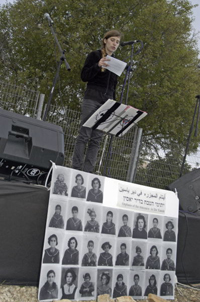
Deir Yassin Commemoration 2006 (18)
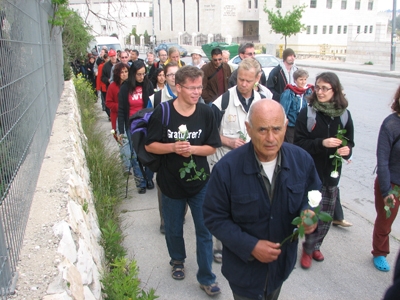
Deir Yassin Commemoration 2006 (6)
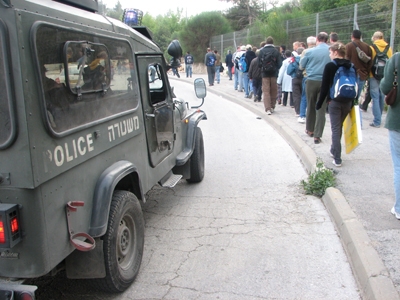
Deir Yassin Commemoration 2006 (7)
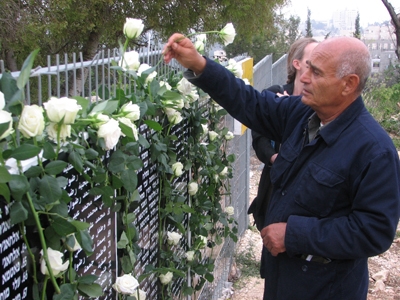
Deir Yassin Commemoration 2006 (12)

Deir Yassin Commemoration 2006 (14)

Deir Yassin Commemoration 2006 (14)
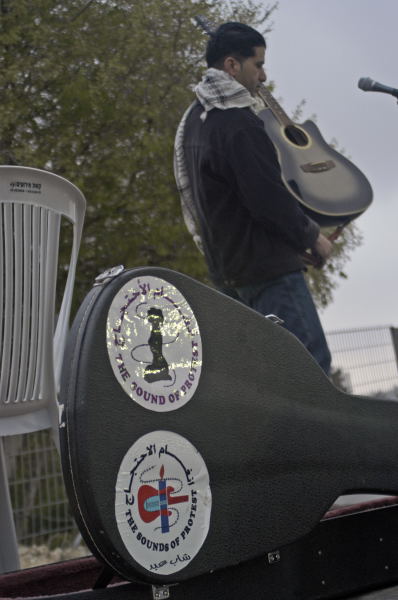
Deir Yassin Commemoration 2006 (20)
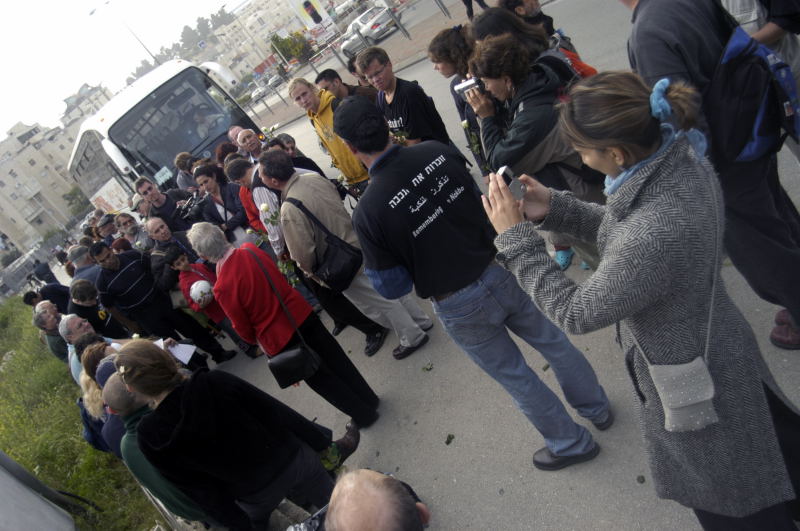
Deir Yassin Commemoration 2006 (2)
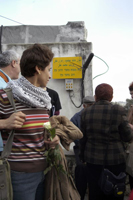
Deir Yassin Commemoration 2006 (4)



